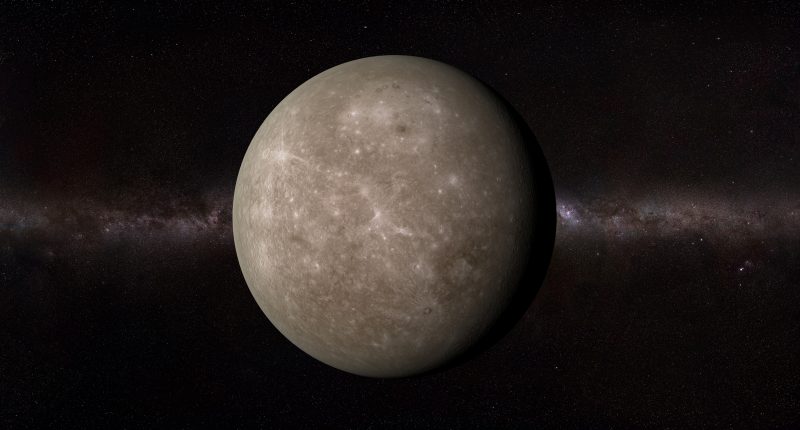SCIENTISTS believe that life could be hiding in salty glaciers on Mercury.
In a new study, planetary scientists shared that they discovered salty glaciers near the north pole of Mercury.
This has sparked a new theory that life could be hiding on the scorching hot planet.
The new findings were made using observations from Nasa’s retired MESSENGER probe.
“Our finding complements other recent research showing that Pluto has nitrogen glaciers,” lead study author Alexis Rodriguez, a planetary scientist from the Planetary Science Institute (PSI), said in a statement.
This implies that the glaciation phenomenon can be found in both the hottest and coldest parts of our Solar System
These locations are important because they identify “volatile-rich exposures throughout the vastness of multiple planetary landscapes,” Rodriguez added.
Glaciers found within Mercury’s craters are not like the ones on Earth – instead, they comprise sodium trails that have captured volatile compounds below Mercury’s surface.
These odd glaciers were uncovered thanks to asteroid impacts, Live Science reported.
The impacts actually exposed the volatile material trapped below the surface.
Most read in News Tech
Moreover, it was surprising to scientists to find glaciers on Mecuryr at all, given its proximity to the Sun.
“Our models strongly affirm that salt flow likely produced these glaciers and that after their emplacement they retained volatiles for over 1 billion years,” said co-author Bryan Travis.
The scientists added that salt compounds on Earth can create “habitable niches even in some of the harshest environments where they occur.”
Naturally, this prompted the researchers to think of the possibility of life being present in such areas of Mercury.
“These areas could potentially act as depth-dependent ‘Goldilocks zones,’ analogous to the region around a star where the existence of liquid water on a planet might enable life as we know it, but in this case, the focus is on the right depth below the planet’s surface rather than the right distance from a star,” Rodriguez said.
“This groundbreaking discovery of Mercurian glaciers extends our comprehension of the environmental parameters that could sustain life, adding a vital dimension to our exploration of astrobiology also relevant to the potential habitability of Mercury-like exoplanets,” he added.
The discovery could make scientists rethink previous notions of Mercury.
Particularly, the idea that it is a planet devoid of life-creating compounds.










